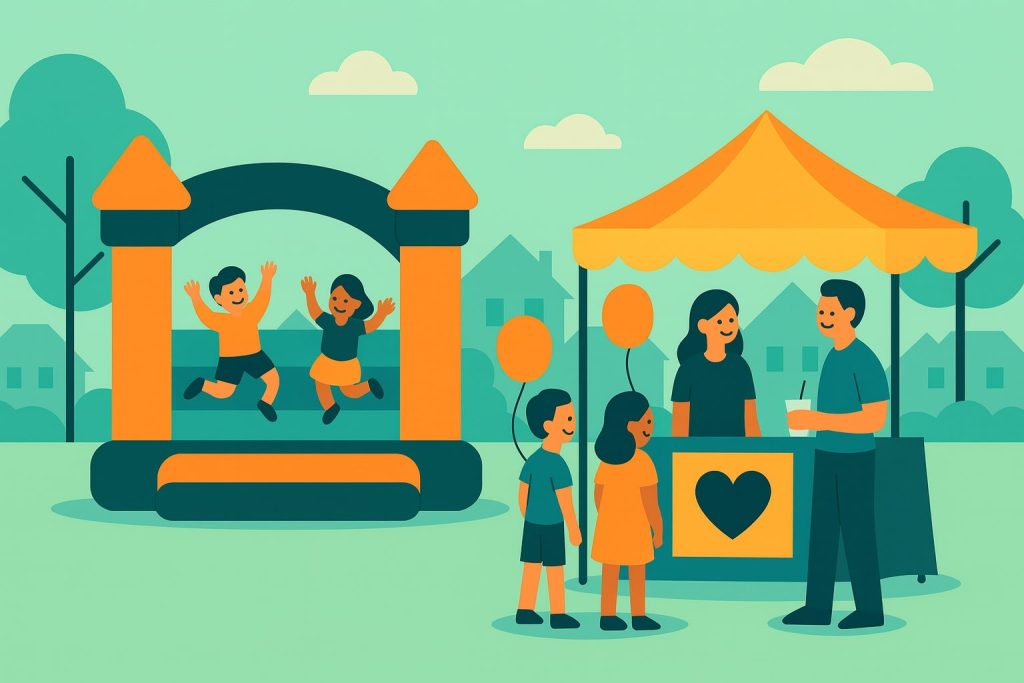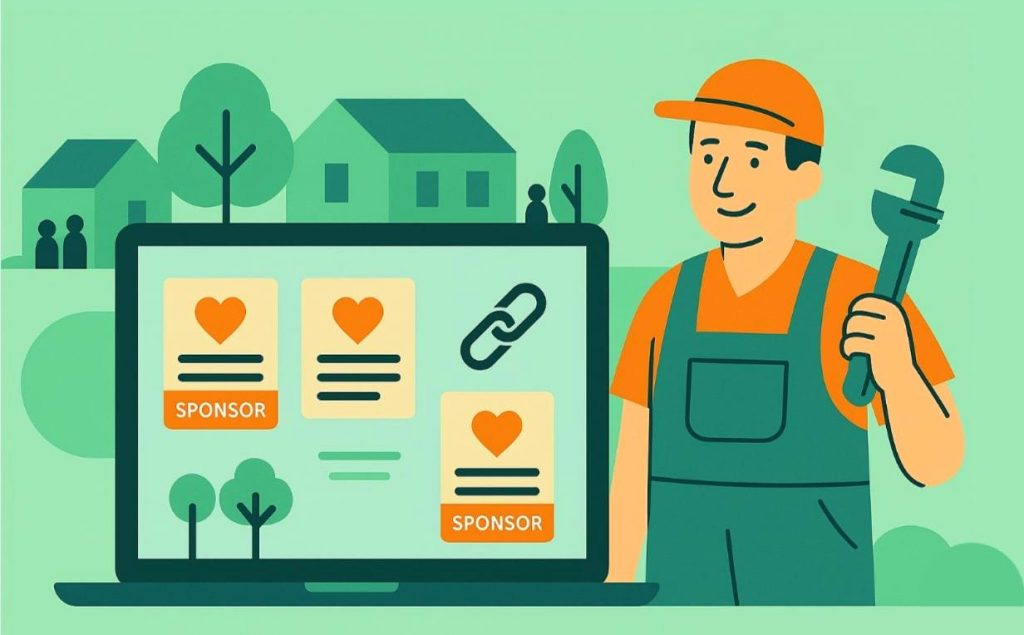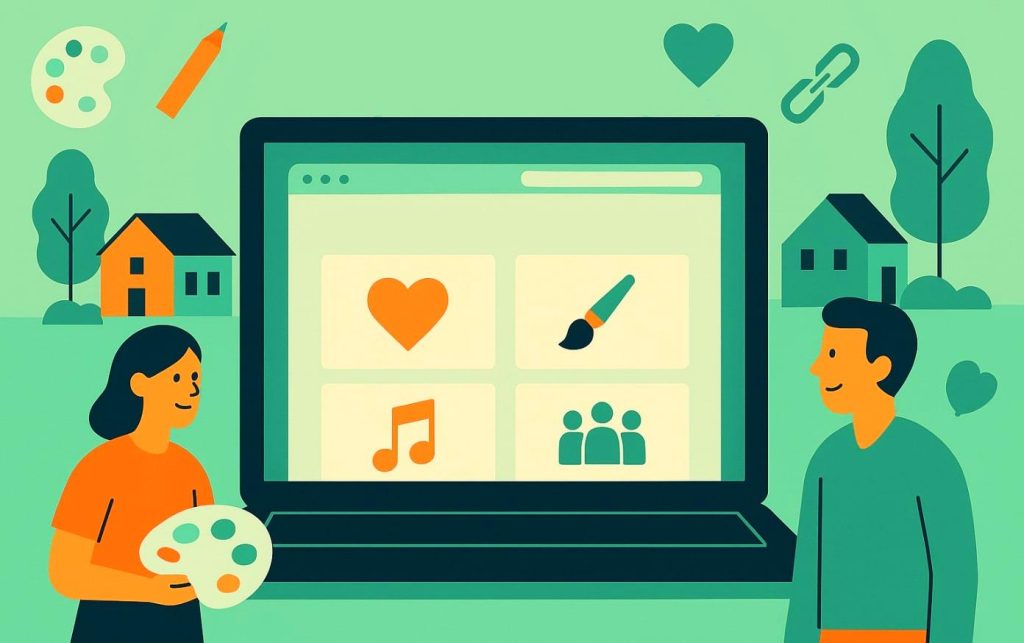Apparently the center of industry used to be New Jersey. If you were an inventor, you went to New Jersey – Thomas Edison, feel as you may about the man, brought the modern lab to New Jersey. The Bell Labs (as in Alexander Graham Bell) also placed its headquarters there. According to an NPR story I just heard on the topic, if, in 1950, you were going to place bets about the future hub of technology – New Jersey definitely would have won out over, say, Northern California. But as we all know, that’s not what happened.
People started leaving New Jersey for California. The Garden state had too many rules, making it difficult for entrepreneurs to branch out. California – not so much.
But all that has changed, obviously. The San Francisco Bay Area is the place to be if you want to start a tech company. Or is it?
The past ten or so years have seen a new trend. While the Bay Area is still at the top, for now, in terms of the number of startups, the fastest growing US cities are places like St Louis, Kansas City, Salt Lake City, and Nashville.
In today’s episode of The Zip, I’m speaking to Chuck Bryant, leader of a startup community in Nashville, called TechFed Nashville. Chuck is a startup guy through and through – he’s founded multiple companies, he knows tech, and he cares about the entrepreneurial scene. And Chuck’s story is happening everywhere, in smaller and mid-sized cities across the US. To the point that I feel like, one day in the not so far future, we may say “ fun fact – the center of industry in the US used to be San Francisco.”
In today’s episode, Chuck and I will talk about the tech scene in Nashville, what the city is known for beyond its music scene, and some issues he still sees in his local startup space.
You can be a local almost anywhere you want, and have the startup too.
Welcome to The Zip.
Megan Hannay:
You can tell me a bit about TechFed Nashville and who do you serve, and what’s the goal of your organization?
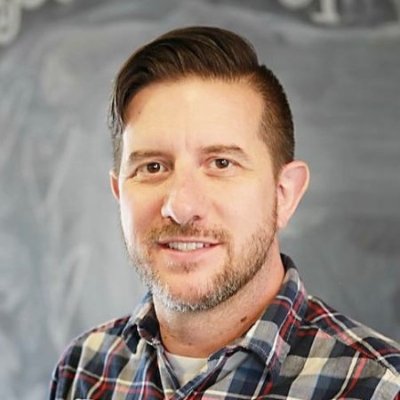 Chuck Bryant:
Chuck Bryant:
Sure, so TechFed Nashville, it’s really the Technologist Federation of Nashville. It is a non-profit organization that’s focused on helping to grow and support the local tech talent in Nashville and middle Tennessee.
Megan Hannay:
Got it, and so what’s unique about this community, and what need did you see that you thought could fill that hadn’t been filled yet?
Chuck Bryant:
Sure, well a lot of folks talk about, one of the things I like most about Nashville is that we have a very collaborative community, at the city level and in particular in the tech community. For the tech talent what that means is we have a lot of folks who are interested in looking for opportunities to learn and share and to connect and tell help each-other grow in their careers.
Megan Hannay:
How do you see this community as being more I guess, tight-knit than other communities?
Chuck Bryant:
Well, the way we look at it is just the number of grassroots-organized events and user groups and meet-ups that we have. So, back when I started connecting with the local community around 2007 there really were just a handful of user groups, and maybe one or two annual events. In that time we’ve grown up to have about 20 annual tech conferences and similar events and over 50 technical user groups and meet-ups. And so, that’s about 10,000 people I think who are turning out actively engaged in user groups and meet-ups, helping to organize them, helping by speaking at them and of course, coming to participate.
Megan Hannay:
So, your goal is to make sure that those groups stay big and that they get bigger and they stay an integral part of Nashville?
Chuck Bryant:
Right, well certainly a part of our mission is to help continue what we have and to help grow it. We want to be the sort of go-to spot for people to discover these opportunities, so if you move to Nashville and you’re looking to connect with the tech community or change careers, that our website and social media are a place to come discover opportunities to learn, share and connect. We help organizers start new things as well as continue the things that have already started.
Megan Hannay:
So, for you, what was the impetus for you to – back in, I guess you said 2007, what made you say, I should take this on? Where does your interest in tech stem from and your…yeah, your desire to be like, I’m going to be the guy that makes sure this happens?
Chuck Bryant:
That’s a good question. I first moved in Nashville in 2005 to work for a small company and I was really heads-down for a couple of years, focused on that and didn’t really have an opportunity to connect with folks. When I came heads-up was about the time that we had our first BarCamp Nashville in 2007. So, I went to that not really knowing anybody. A buddy of mine had found out about it and we went together. I think there were about 350 people who turned out, and I think most of them had an experience that was similar to mine which was, where did all these cool people come from? And, how can I stay connected to them? So, I volunteered on to help organize the next event and have been involved ever since.
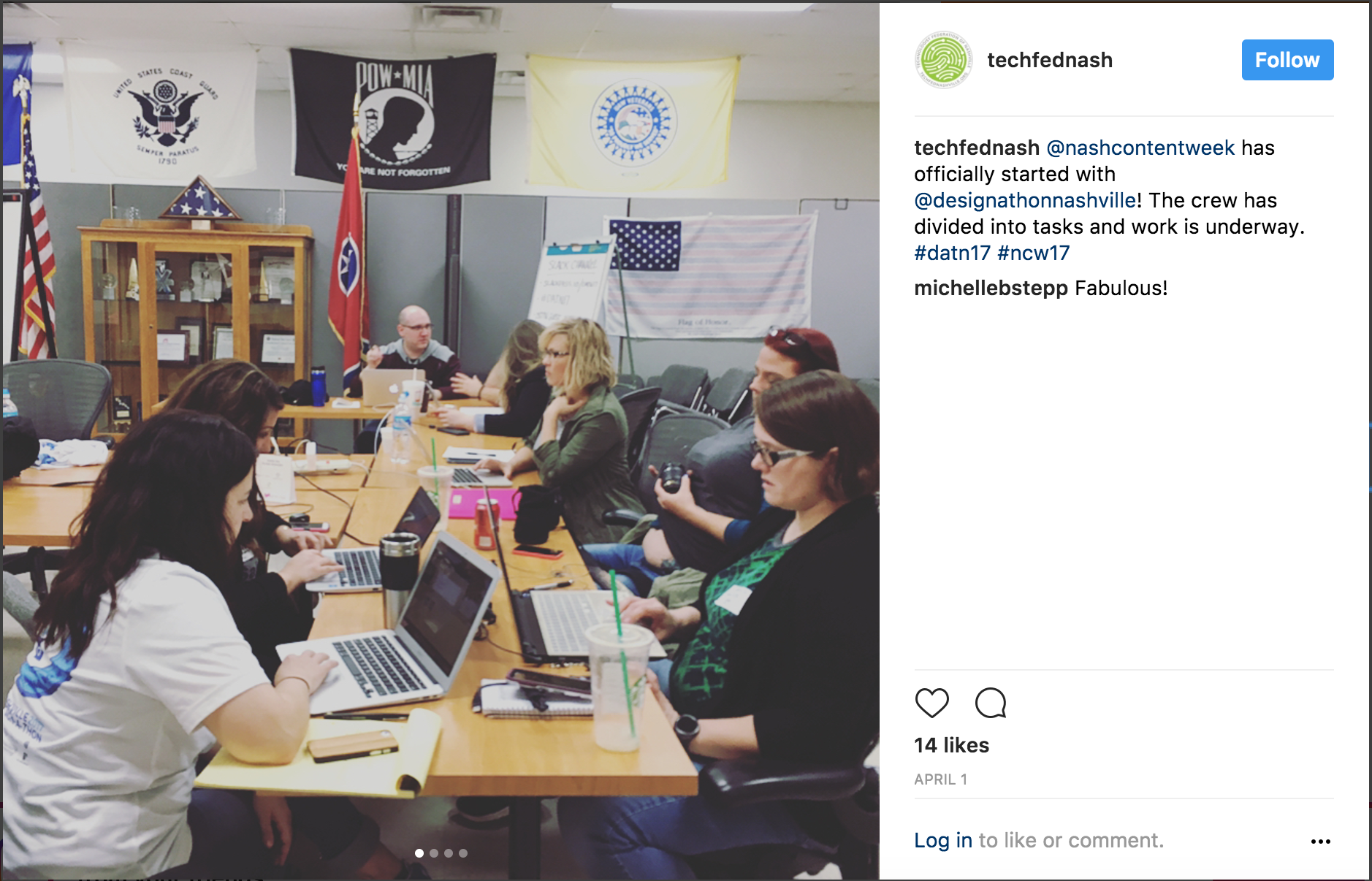
Megan Hannay:
So, it’s kind of like one of those…I know what you mean, you kind of show up and you’re like, maybe there’s a need and you raise your hand and suddenly, you’re a big part of something that previously you had just been a participant in, which is kind of a cool way to grow into a community.
In Durham, North Carolina where I am, I feel like it may be a situation similar to Nashville where, it’s a great place to live, so we’re getting a good number of people who are like, why go to Silicon Valley or pay California or New York prices when I can live in a great, smaller city, launch my start-up here and have a different kind of lifestyle? I feel like this is a trends that’s happening in a lot of midsize or even smaller cities over the past few years. Is this something you’re seeing in Nashville as well?
Chuck Bryant:
Absolutely. On average I think we’re having about 100 people a day move here now. Last year was 85 people a day they say.
Megan Hannay:
Where are they coming from?
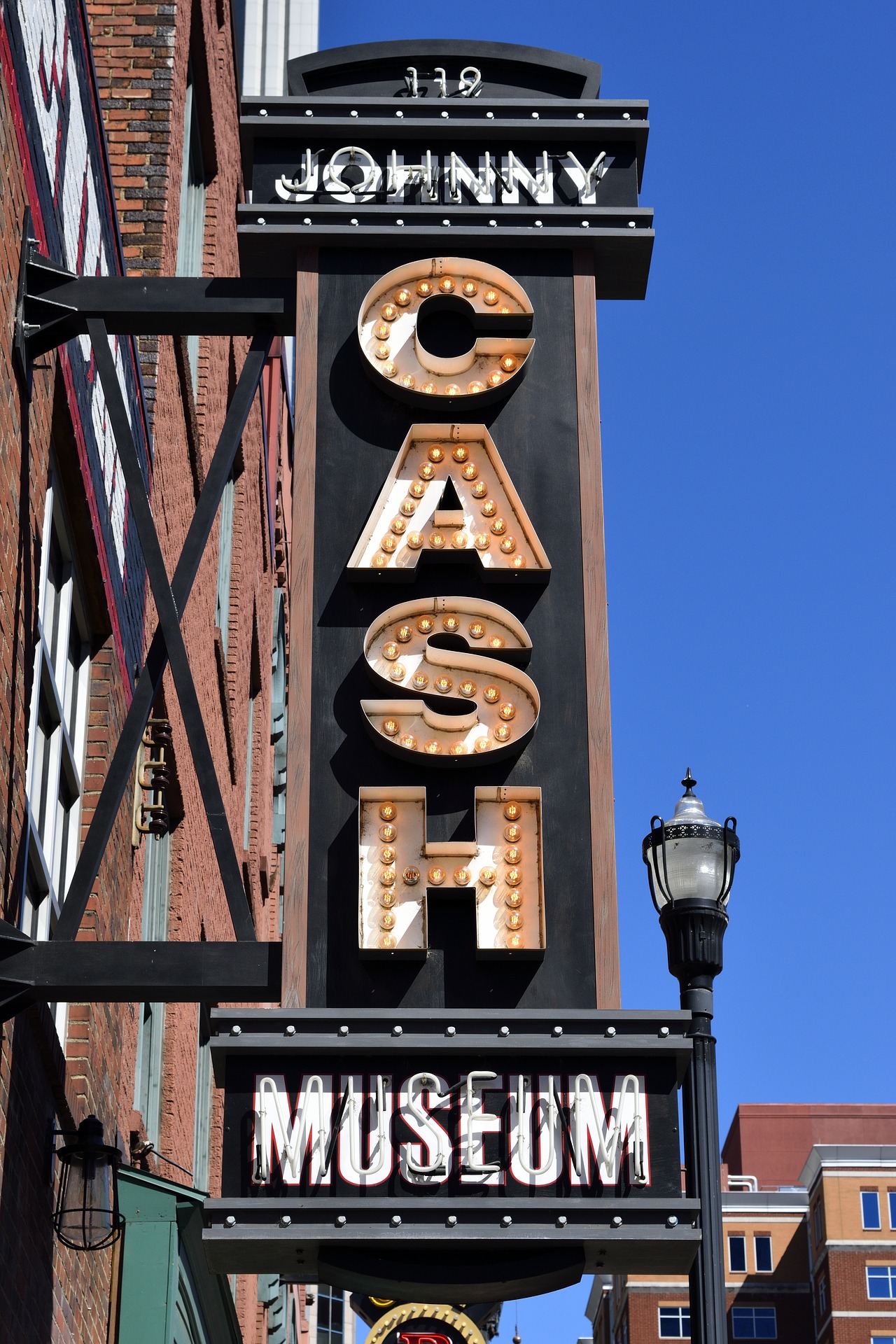
Chuck Bryant:
All over. Some are coming from the coast and from the bigger cities and some are coming from smaller communities too. Nashville has a very strong creative community and a history of creative types living here. I think a good number of our software developers and other tech talent think of themselves as creatives as well, and I think a lot of our collaborative atmosphere comes from that. At its core, Nashville’s creative community started with songwriters, and songwriting is a very collaborative exercise for most songwriters, and that culture I think imbues the whole city.
Megan Hannay:
Are there particular Nashville-based start-ups that you are particularly proud of or that you think are really standing out that you guys work with?
Chuck Bryant:
I’ve got to be careful about showing favoritism to certain companies, particularly some of them who are sponsors. But, we do have a number of well-established companies that were start-ups here, a few that have had some large exits, and then quite a few that are in their early stages now, and certainly over the last five to ten years we’ve seen dramatic growth in this part of the tech sector.
Megan Hannay:
Yeah, I actually read an article recently that Nashville is a particular hub for healthcare start-ups, which I had no idea. I think a lot of people hear Nashville and think music, but do you see that a lot? What’s the healthcare connection there?
Chuck Bryant:
That’s very true. We’re sort of the healthcare capital of the country in some ways. A number of very large healthcare companies are based here, particularly around insurance and hospital operations and support of that industry. They’re here and were successful because they innovated in the healthcare sector, and now those same companies are interested in innovating with technology in healthcare. So, that’s a prime source both of talent and expertise, but also of venture capital. It’s just a natural fit for those folks to work together.
Megan Hannay:
So, it just kind of grew out of the existing sector which is really neat. I was reading about one called – that was featured in an article – called Dose Healthcare which offers on-demand medical services, I guess I can Uber for doctors, which is an interesting idea. You’re like, I have a broken bone. Let me get my Uber for doctors out here. I kind of hope that sticks around even with potential changes to our national healthcare system. It seems like a great, modern way to do healthcare.
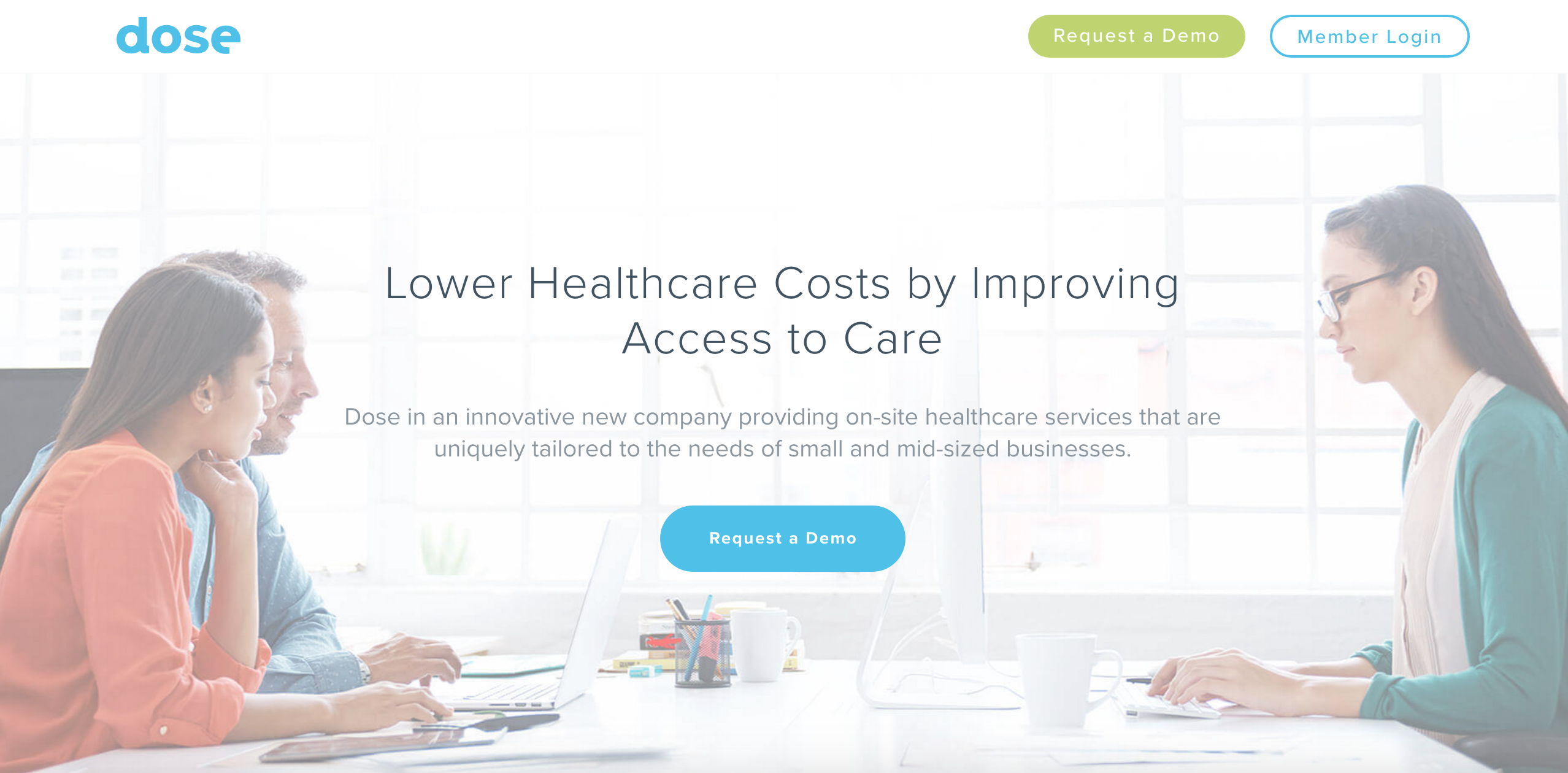
Chuck Bryant:
Sure, yeah there’s a lot of activity in the telemedicine space as well, where you can call up and talk to a doctor or a nurse practitioner, where you’ve got the ability to ring in a specialist and have them see live telemetry about your physical condition.
Megan Hannay:
That’s so neat. It saves so much time in the waiting room and, I’m sure, and driving injured people around which probably doesn’t need to happen as much as it does.
I did a bit of LinkedIn stalking on you and website stalking, and I see that you’ve actually started quite a few other companies. So, as an entrepreneur in Nashville yourself what are some areas where you felt like you’ve needed support? Or, what do you wish that maybe Nashville had that it doesn’t have yet, if anything?
Chuck Bryant:
That’s a fantastic question. I have participated in starting a number of efforts, including for-profit companies as well as non-profits like TechFed. One of those – actually, two of those were venture-funded start-ups. I tell you, one of the challenges is just accessing critical resources. In one sense, that’s…for one of my start-ups it was in the international trade sector, and we don’t have a lot of that in Nashville so when we needed expertise beyond what we knew, we had to go out of market to find that. Likewise with the venture capital funding, most of the venture funds here tend to be a little more risk-averse than what you’ll find on either of the coasts, so raising money can be a challenge, particularly if you’re not in the healthcare or healthcare technology space, simply because we don’t have that kind of expertise in our venture funds as well. And, they tend to stick to things that they have deep knowledge in and have connections in.
Megan Hannay:
How did the international trade start-up come along? Especially because Nashville, it’s not a border city, or it doesn’t touch an ocean or anything. How did that get started?
Chuck Bryant:
That’s a great story. It really got started because we had a connection in a coastal state who had existing operations that they were looking to augment. One of their leadership team was from Nashville and had connections here. We had some expertise to bring to the challenges that they were looking to overcome. It was a great partnership and we developed a pretty successful solution, but we had trouble scaling it, particularly without having the capital resources to really grow the effort.
Megan Hannay:
Yeah, I feel like international trade in itself is a huge hot button issue right now and probably, I would imagine any sort of company starting in that area would have to have a ton of lawyers, and there’s a lot of legal I’m sure, that goes into that.
Chuck Bryant:
There’s a fair amount. The partner that we had already had an existing cross-border operation going, so a lot of that complexity had been solved. What they were looking to do was integrate more deeply with US-based merchants. So, we brought some ecommerce expertise and some marketing expertise and developed a business model and a platform that could drive that type of integration.
Megan Hannay:
Cool, then another start-up, or business that you founded, and this is kind of where we get to the meta part of the conversation. But, I couldn’t not take this tangent. So, you also run a company that helps people create podcasts I believe. Can you tell me a little bit about that and how the idea for an agency that focuses on podcasts came about?
Chuck Bryant:
Absolutely. This is the company I work with now, it’s called Relationary Marketing. Our focus is on turnkey podcast production, primary for business-to-business clients. We call it podcasting but really, what we’re about is creating rich content to help drive a content marketing strategy for our clients. There are really two strong components to that. One is about the content itself. Most of the time, our episodes get embedded in blog posts and we’re really driving traffic to the website rather than to subscribers on iTunes or somewhere else. The second component is really around nurturing relationships on behalf of the client because ultimately, what we’re helping to do is to tell the client’s story by having them interview people who tell their own story, and that in turn tells the client’s story. We try to create some interesting content around those stories.
Megan Hannay:
I get that, that’s kind of what I do, too. Who are your typical clients, or who do you think benefits the most from having their own podcast from a business perspective?
Chuck Bryant:
Sure, well we have a few types of clients. One is a B2B business that’s really trying to establish their credibility without leadership in their industry. So, by interviewing their internal subject matter experts and their external experts and key customers and even prospects, we’re able to reveal their stature and expertise in the space. Another category of client that we have are events. For events, it’s really about exposing the activity that’s happening around the event, raise awareness and drive participation. For those clients we might do lead-up interviews with some of their key speakers that they can trickle out in advance of the event to help raise awareness and drive registrations, and then we do a really special thing at conferences where we set up what we call the podcast lounge. That looks like a TV talk show set. We set it up in a high-traffic area outside of sessions, a couple of comfy chairs and maybe a plant and a coffee table. And, of course we’ve got the mics on the booms and headsets and everything.
It kind of creates a bit of a spectacle but it also creates a really special experience for the guests. The folks we typically interview at an event are keynote speakers and maybe some key participants and organizers or sponsors. It allows us to give them a unique and special experience. That’s a part of the relationship nurturing. But, it also allows us to expose some of the backstory about what they’re speaking about, or why they participate in that particular conference. Those usually get shared the same day, so it’s also an opportunity to extend the experience of the event beyond the physical spaces and beyond the actual sessions.
Megan Hannay:
Yeah, so where do you see a growth area for podcasts, or do you? I guess I feel like there are so many existing podcasts that I want to listen to. It’s such a busy market but at the same time, it’s such a great way to build out a brand as you were saying and also, to get to know your customers as a company. Do you see any areas where we as a society I guess, could use more podcasts?
Chuck Bryant:
Well, one of the cool things about podcasting is that there’s pretty much a show for every interest, right? A lot of the podcasts that people are familiar with are oriented at consumers and the objective of the people producing that podcast is to grow that audience, and maybe put ads in-front of them or, in some other way derive revenue from that audience. Really, what we do is focus on driving value for our clients. It’s not always about attracting a large audience because we’re not trying to put ads in-front of them. They’re trying to share information to help them solve challenges they face in their business. And, it’s a little bit of an indirect way to expose their own service or product as a way of providing a solution for those challenges. This is where we’re seeing a lot of growth.
On the consumer side we’re seeing a lot of very well-known and professional voices getting into the market, whereas the tradition has been that it’s small mom and pop building audiences, and that’s still true as well. But, I think the highest growth area is really in this B2B market as people are discovering that there are these unique and different ways to use the podcasting platform to connect with people who have business problems looking for solutions, and to share some expertise and maybe bring them on as a client or a customer as well.
Megan Hannay:
I agree. Obviously, I do a podcast, I’m a little bit biased. But, I feel like as opposed to written content which can sometimes feel a little bit cookie cutter in a way. There are definitely people that do written content well, but I think something about hearing people’s voices just feels so much more personal and it can be a great way to connect with your customers.
So, I guess kind of going back to the entrepreneurship in general, and I think what’s an interesting I find about you, and I think maybe it’s probably why you lead TechFed Nashville is because you are an entrepreneur but you’ve worked in so many – you do a podcasting company. You did an international trade company, and I feel like there are some people that start companies because they have a certain passion for whatever the company’s about, and there are some people that just love starting companies, just have an entrepreneurship mindset. So, would you say you’re kind of that latter type, or what would you – I guess, how would you categorize yourself as an entrepreneur, and do you feel like that…yeah, I don’t know. Do you feel like that helps you service people within TechFed Nashville?
Chuck Bryant:
Sure, really I’m an organizer. I have to be building something, organizing something. Not the guy to hire if you just need maintenance work on something. I think tying that with being focused on helping people solving problems is really what drives me as an entrepreneur. And, you’re right to mention the passionate part because I think in order to be successful as an entrepreneur you have to have a certain amount of passion for the problems that you’re trying to solve.
Megan Hannay:
Yeah, definitely. If someone wanted me to solve, I don’t know, something that had to do with worms or, I don’t know, snakes, yeah I would be much less interested than I am with the zip sprouter. Or, maybe even something that just kind of had to do with different areas that I’m not as interested in.
Chuck Bryant:
Sure, well each of us have our own set of talents and expertise, and there are a lot of ways we could bring that to bear but how many of those do you really feel passionate about? I think that’s the best combination is finding something that you’re passionate about where you also have some skills or expertise or talents to bring to bear. For me, it’s about helping people solve problems as well.
Megan Hannay:
Yeah, and I think that could be an interesting challenge too, especially for start-up entrepreneurs because you might start out passionate about it, and then there’s a lot of burnout. You’re working these crazy hours and you’re putting your all into it and a couple of years later, you’re like…you want to make sure that you’re still feeling as passionate as you did on day one, and I think that’s where some people have problems. This is way more complicated than I thought it was.
Chuck Bryant:
Yeah, it can be difficult to sustain your energy and your passion, and if you run out of passion before you exit you’re in trouble.
Megan Hannay:
Absolutely, and that’s probably where having a community kind of helps again, because you have people that completely understand what you’re going through. And then, for TechFed Nashville what do you see as, when you think about that organization in a few years what do you see it growing into?
Chuck Bryant:
Right now, we have about 20 annual events and 50+ user groups and meet-ups, that I mentioned.
Megan Hannay:
That’s a lot, yeah.
Chuck Bryant:
Yeah, so we’re focused on adding a light layer of communication and coordination. I like to think of these as styles of success and as we sort of stitch them up, with a little bit of coordination that creates some economy of scale. What we’d like to be able to do is leverage that economy of scale to drive new initiatives that make sense under the umbrella of this non-profit.
Megan Hannay:
Got it, cool. So, just building out more and more programs for different types of entrepreneurs within…
Chuck Bryant:
Yeah, but different things we couldn’t do as just a couple of folks trying to organize. That works great, if you can get four or five people together you can put together a music group. Or, you can start your own tech conference. But, there are other things, other challenges that we’d like to tackle that takes some more concentrated effort and we need larger backing behind us in order to achieve those kinds of goals.
Megan Hannay:
Can you think of any of the particular challenges offhand? Or…
Chuck Bryant:
Yeah, one of the ones that we’re focused on is helping place junior developers in their first role. We have a ton of folks who have become interested in becoming a software developer. Many of those folks are making career changes, or some of them are coming out of academic programs. They’ve got skills but they don’t necessarily have a lot of coding experience. We had a bunch of employers who are faced with the challenge of hiring developers, and it’s a high-demand market with a limited supply. But, many of them are hesitant to hire junior developers who don’t have two, three, four years of experience. So, we have a mismatch.
We’ve got several coding boot camps here that are producing some really high-quality talent, and the more of those we produce the harder it is for them to find placements. We’re trying to tackle this from two angles. One is creating internships for these folks coming out of the boot camps and out of four-year and two-year degree programs to give them some real, actual experience working on projects that are separate from classroom projects. At the other end, We’d like to be working with employers who are not currently hiring these types of junior developers, to give them the training and expertise and coaching that they need in order to be successful in hiring junior devs so that they can do that.
Megan Hannay:
That’s really smart, and that’s something I thought, there are a ton of boot camps everywhere I think now, for people that want to transition to development. I think that’s such a great idea, especially because I really don’t think that maybe going back to another two, or especially four years of school is necessarily for career transition necessarily. But, I agree. I think sometimes people jump into this boot camp where they pay a ton of money, and they’re not really clear and sometimes they’re advertised, oh yeah, you’re totally going to make a lot of – you’re going to get a great job that pays really well as soon as you graduate, and that isn’t always necessarily true even if there is a lot of demand for developers. So, I think internships are a great way to ease into that.
Chuck Bryant:
Absolutely, yeah.
Megan Hannay:
I know we’ve already talked quite a bit about Nashville, but one final question I like to ask every guest is just about their city in general. So, maybe outside of the tech scene, what makes Nashville special? What keeps you in Nashville and what’s so special about the area?
Chuck Bryant:
Sure, we touched on a couple of those but, the collaborative nature and the creative spirit and the creative talent that’s here. One of the things I really love about Nashville is that we have a lot of sort of big-city amenities. We have a world-renowned symphony, we have professional sports teams, the Nashville Predators are in the third round of the playoffs for the Stanley Cup. But yet, we still have a small-town feel. It’s really easy to meet people here, it’s easy to get a meeting, and it’s easy to pull people together to work on like interest. So, in many ways we still have that character and feel and flavor of being a small town, but have these amazing amenities that you don’t typically find in a city this size.

Megan Hannay:
Yeah, I was actually in Nashville about six months ago and I had fun. I ate, like a lot of hot chicken I remember. After a while you’re like, oh my God, this is amazing.
Chuck Bryant:
And, we have hot chicken.
Megan Hannay:
Yeah, really good. I went to this one place that had hot chicken on top of macaroni and cheese, and I was like, this is the best dinner. Well, Chuck, thank you so much for being on The Zip and telling me about Nashville and what the tech community is up to there. I really appreciate it.
Chuck Bryant:
You bet, Megan, thanks for the opportunity.

